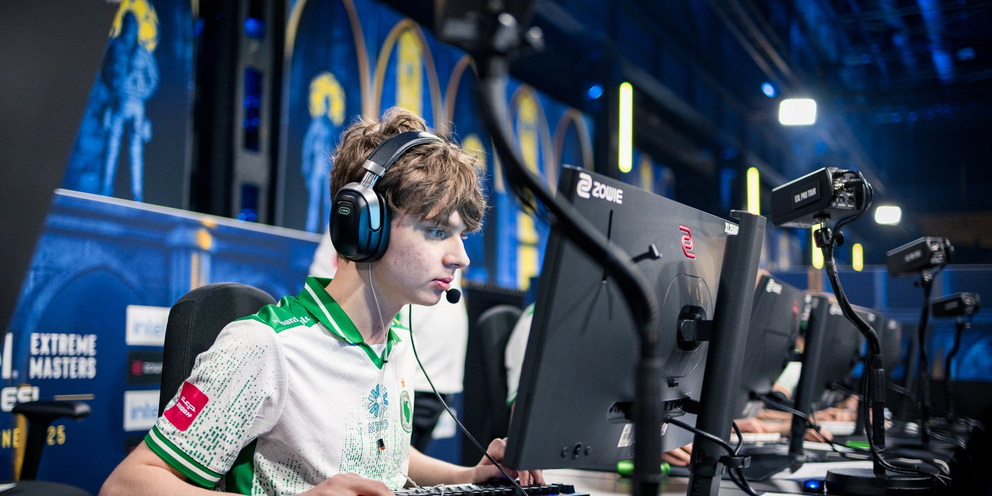IEM Cologne, often dubbed the “Cathedral of Counter-Strike,” represents one of the pinnacle events in the CS2 esports calendar. With a staggering one-million-dollar prize pool and the eyes of the global community fixed on Germany, it`s a stage where only the most cohesive and resilient teams are expected to thrive. For Team Falcons, a squad boasting considerable talent and under the tutelage of veteran coach Danny “zonic” Sørensen, their journey at IEM Cologne 2025 was cut surprisingly short, ending after just three matches in the group stage and securing a 9-12th place finish.
Zonic`s Candid Assessment: Beyond the Scoreboard
Following their early exit, zonic offered a remarkably candid assessment. While the immediate result was undeniably disappointing, he was quick to peel back the layers and reveal the complex internal dynamics at play. His remarks paint a picture not of a team lacking individual skill, but one grappling with the intricate art of synergy.
“We thought that we could beat FURIA. I am disappointed with the result, but it is clear that we have new roles, a new player, even if he shows a magnificent level. All of this led to difficulties for us. We have certain communication problems, and I did not feel enough energy in the confrontation with The Mongolz.”
This statement, coming from a coach with zonic`s legendary pedigree – a multiple Major winner – provides valuable insight into the invisible mechanics that dictate success in high-stakes esports.
The Integration Challenge: A Symphony in Progress
Esports, much like traditional sports, is rarely a simple summation of individual talents. A new player, even one performing at a “magnificent level,” isn`t merely a plug-and-play component. Integrating a new voice and a new set of mechanics into an established, or in Falcons` case, a re-establishing, structure demands time, patience, and a delicate rebalancing of existing roles.
Imagine a well-practiced orchestra suddenly introducing a new first violin and rearranging the entire string section. While each musician might be world-class, the immediate performance might falter as they learn to read each other`s cues, adapt to new dynamics, and find their collective rhythm. Falcons` situation, with “new roles” alongside a “new player,” perfectly illustrates this challenge. It`s a testament to the fact that raw skill, while essential, is only one piece of the competitive puzzle.
The Human Element: Communication and Energy
Perhaps the most telling revelation from zonic was the acknowledgment of “communication problems” and a palpable lack of “energy” against The Mongolz. In a game as fast-paced and strategically dense as CS2, split-second decisions and precise coordination are paramount. Without crystal-clear communication, even the most brilliant strategies can crumble. Furthermore, the absence of collective energy – that intangible spark of motivation, confidence, and mutual drive – can transform a team of formidable individuals into a disjointed collection.
It`s somewhat ironic, isn`t it? In an era dominated by advanced analytics, high-speed internet, and sophisticated gaming setups, the fundamental human elements of clear communication and shared enthusiasm remain as critical as ever. Even in the digital arena, the most high-tech competitive battles are often won or lost on the back of decidedly low-tech problems.
Learning from the Cathedral`s Shadow
Team Falcons` premature departure from IEM Cologne 2025 serves as a potent reminder that the path to competitive dominance is rarely linear. It`s a journey punctuated by setbacks, requiring constant adaptation, and demanding an unyielding focus on both individual excellence and collective harmony. For zonic and Team Falcons, the $1 million prize pool now serves as a distant aspiration, but the lessons learned on the grand stage of Cologne are invaluable. The task ahead involves not just refining aim or perfecting strategies, but diligently addressing the unseen hurdles of team integration and human dynamics.
The esports landscape is unforgiving, but it also offers endless opportunities for growth. Team Falcons now faces the critical task of translating these “disappointing results” into a catalyst for stronger, more cohesive performances in future tournaments. The ultimate victory often lies not just in winning matches, but in mastering the complex art of team itself.

